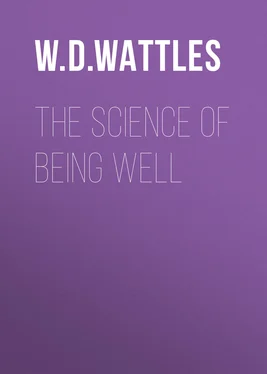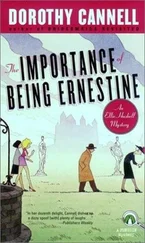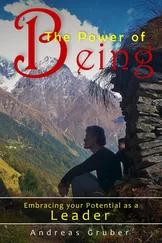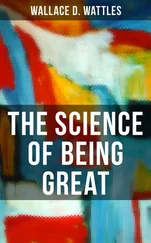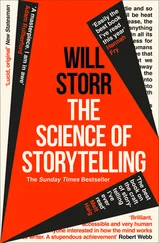W. D. Wattles - The Science of Being Well
Здесь есть возможность читать онлайн «W. D. Wattles - The Science of Being Well» — ознакомительный отрывок электронной книги совершенно бесплатно, а после прочтения отрывка купить полную версию. В некоторых случаях можно слушать аудио, скачать через торрент в формате fb2 и присутствует краткое содержание. Жанр: foreign_antique, Медицина, psy_theraphy, foreign_edu, на английском языке. Описание произведения, (предисловие) а так же отзывы посетителей доступны на портале библиотеки ЛибКат.
- Название:The Science of Being Well
- Автор:
- Жанр:
- Год:неизвестен
- ISBN:нет данных
- Рейтинг книги:3 / 5. Голосов: 1
-
Избранное:Добавить в избранное
- Отзывы:
-
Ваша оценка:
- 60
- 1
- 2
- 3
- 4
- 5
The Science of Being Well: краткое содержание, описание и аннотация
Предлагаем к чтению аннотацию, описание, краткое содержание или предисловие (зависит от того, что написал сам автор книги «The Science of Being Well»). Если вы не нашли необходимую информацию о книге — напишите в комментариях, мы постараемся отыскать её.
The Science of Being Well — читать онлайн ознакомительный отрывок
Ниже представлен текст книги, разбитый по страницам. Система сохранения места последней прочитанной страницы, позволяет с удобством читать онлайн бесплатно книгу «The Science of Being Well», без необходимости каждый раз заново искать на чём Вы остановились. Поставьте закладку, и сможете в любой момент перейти на страницу, на которой закончили чтение.
Интервал:
Закладка:
W. D. Wattles
The Science of Being Well
PREFACE
This volume is the second of a series, the first of which is "THE SCIENCE OF GETTING RICH." As that book is intended solely for those who want money, so this is for those who want health, and who want a practical guide and handbook, not a philosophical treatise. It is an instructor in the use of the universal Principle of Life, and my effort has been to explain the way in so plain and simple a fashion that the reader, though he may have given no previous study to New Thought or metaphysics, may readily follow it to perfect health. While retaining all essentials, I have carefully eliminated all non-essentials; I have used no technical, abstruse, or difficult language, and have kept the one point in view at all times.
As its title asserts, the book deals with science, not speculation. The monistic theory of the universe—the theory that matter, mind, consciousness, and life are all manifestations of one Substance—is now accepted by most thinkers; and if you accept this theory, you cannot deny the logical conclusions you will find herein. Best of all, the methods of thought and action prescribed have been tested by the author in his own case, and in the case of hundreds of others during twelve years of practice, with continuous and unfailing success. I can say of the Science of Being Well that it works; and that wherever its laws are complied with, it can no more fail to work than the science of geometry can fail to work. If the tissues of your body have not been so destroyed that continued life is impossible, you can get well; and if you will think and act in a Certain Way, you will get well.
If the reader wishes to fully understand the monistic theory of the cosmos, he is recommended to read Hegel and Emerson; to read also "The Eternal News," a pamphlet by J. J. Brown, 300 Cathcart Road, Govanhill, Glasgow, Scotland. Some enlightenment may also be found in a series of articles by the author, which were published in The Nautilus , Holyoke, Mass., during the year 1909, under the title, "What Is Truth?"
Those who wish more detailed information as to the performance of the voluntary functions—eating, drinking, breathing, and sleeping—may read "New Science of Living and Healing," "Letters to a Woman's Husband," and "The Constructive Use of Foods," booklets by W. D. Wattles, which may be obtained from the publishers of this book. I would also recommend the writings of Horace Fletcher, and of Edward Hooker Dewey. Read all these, if you like, as a sort of buttress to your faith; but let me warn you against making the mistake of studying many conflicting theories, and practicing, at the same time, parts of several different "systems"; for if you get well, it must be by giving your WHOLE MIND to the right way of thinking and living. Remember that the SCIENCE OF BEING WELL claims to be a complete and sufficient guide in every particular. Concentrate upon the way of thinking and acting it prescribes, and follow it in every detail, and you will get well; or if you are already well, you will remain so. Trusting that you will go on until the priceless blessing of perfect health is yours, I remain,
Very truly yours,
Wallace D. Wattles.CHAPTER I.
The Principle of Health
In the personal application of the Science of Being Well, as in that of the Science of Getting Rich, certain fundamental truths must be known in the beginning, and accepted without question. Some of these truths we state here:—
The perfectly natural performance of function constitutes health; and the perfectly natural performance of function results from the natural action of the Principle of Life. There is a Principle of Life in the universe; it is the One Living Substance from which all things are made. This Living Substance permeates, penetrates, and fills the interspaces of the universe; it is in and through all things, like a very refined and diffusible ether. All life comes from it; its life is all the life there is.
Man is a form of this Living Substance, and has within him a Principle of Health. (The word Principle is used as meaning source.) The Principle of Health in man, when in full constructive activity, causes all the voluntary functions of his life to be perfectly performed.
It is the Principle of Health in man which really works all healing, no matter what "system" or "remedy" is employed; and this Principle of Health is brought into Constructive Activity by thinking in a Certain Way.
I proceed now to prove this last statement. We all know that cures are wrought by all the different, and often opposite, methods employed in the various branches of the healing art. The allopath, who gives a strong dose of a counter-poison, cures his patient; and the homeopath, who gives a diminutive dose of the poison most similar to that of the disease, also cures it. If allopathy ever cured any given disease, it is certain that homeopathy never cured that disease; and if homeopathy ever cured an ailment, allopathy could not possibly cure that ailment. The two systems are radically opposite in theory and practice; and yet both "cure" most diseases. And even the remedies used by physicians in any one school are not the same. Go with a case of indigestion to half a dozen doctors, and compare their prescriptions; it is more than likely that none of the ingredients of any one of them will be in the others. Must we not conclude that their patients are healed by a Principle of Health within themselves, and not by something in the varying "remedies"?
Not only this, but we find the same ailments cured by the osteopath with manipulations of the spine; by the faith healer with prayer, by the food scientist with bills of fare, by the Christian Scientist with a formulated creed statement, by the mental scientist with affirmation, and by the hygienists with differing plans of living. What conclusion can we come to in the face of all these facts but that there is a Principle of Health which is the same in all people, and which really accomplishes all the cures; and that there is something in all the "systems" which, under favorable conditions, arouses the Principle of Health to action? That is, medicines, manipulations, prayers, bills of fare, affirmations, and hygienic practices cure whenever they cause the Principle of Health to become active; and fail whenever they do not cause it to become active. Does not all this indicate that the results depend upon the way the patient thinks about the remedy, rather than upon the ingredients in the prescription?
There is an old story which furnishes so good an illustration on this point that I will give it here. It is said that in the middle ages, the bones of a saint, kept in one of the monasteries, were working miracles of healing; on certain days a great crowd of the afflicted gathered to touch the relics, and all who did so were healed. On the eve of one of these occasions, some sacrilegious rascal gained access to the case in which the wonder-working relics were kept and stole the bones; and in the morning, with the usual crowd of sufferers waiting at the gates, the fathers found themselves shorn of the source of the miracle-working power. They resolved to keep the matter quiet, hoping that by doing so they might find the thief and recover their treasures; and hastening to the cellar of the convent they dug up the bones of a murderer, who had been buried there many years before. These they placed in the case, intending to make some plausible excuse for the failure of the saint to perform his usual miracles on that day; and then they let in the waiting assemblage of the sick and infirm. To the intense astonishment of those in the secret, the bones of the malefactor proved as efficacious as those of the saint; and the healing went on as before. One of the fathers is said to have left a history of the occurrence, in which he confessed that, in his judgment, the healing power had been in the people themselves all the time, and never in the bones at all.
Читать дальшеИнтервал:
Закладка:
Похожие книги на «The Science of Being Well»
Представляем Вашему вниманию похожие книги на «The Science of Being Well» списком для выбора. Мы отобрали схожую по названию и смыслу литературу в надежде предоставить читателям больше вариантов отыскать новые, интересные, ещё непрочитанные произведения.
Обсуждение, отзывы о книге «The Science of Being Well» и просто собственные мнения читателей. Оставьте ваши комментарии, напишите, что Вы думаете о произведении, его смысле или главных героях. Укажите что конкретно понравилось, а что нет, и почему Вы так считаете.
